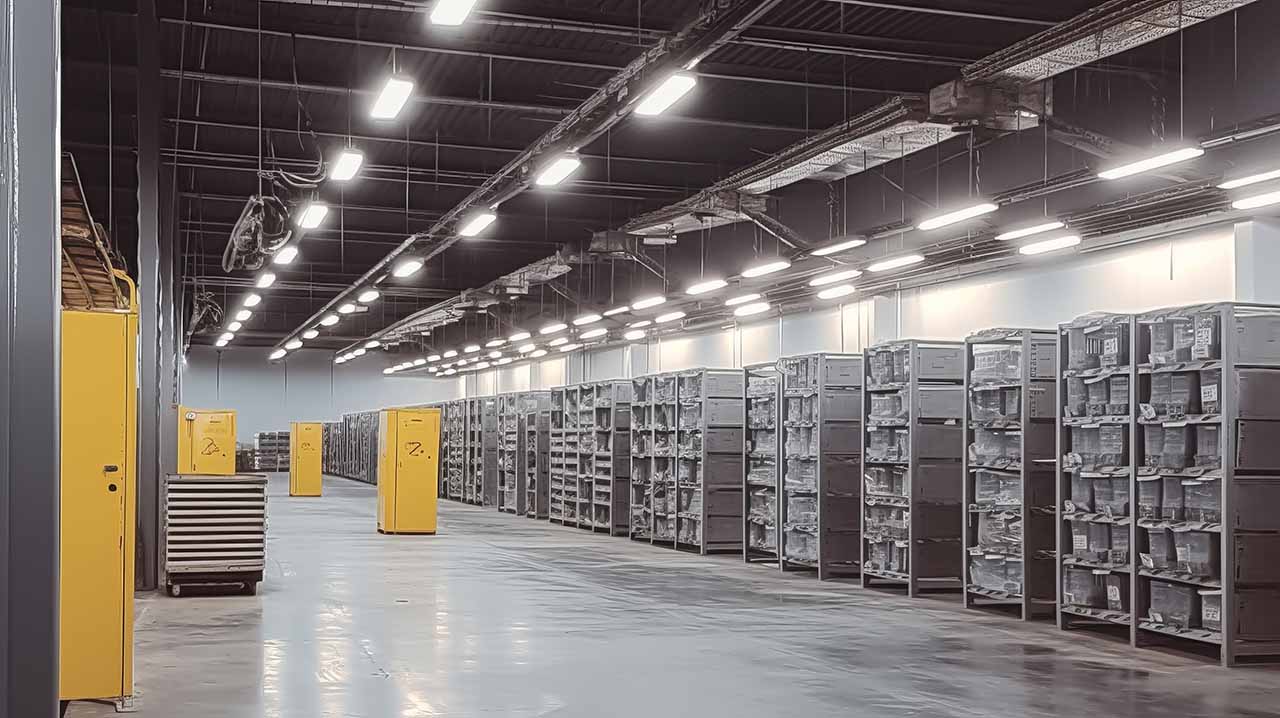Climate-Controlled Warehousing in Pennsylvania: Enhancing Sustainability and Efficiency
Dec 18, 2023
BlogWelcome to our blog post on climate-controlled warehousing in Pennsylvania! In this article, we will dive into the importance of climate-controlled facilities, discuss key statistics, explore educational resources, and highlight the various benefits these warehouses bring to businesses and the environment.
Statistics:
- Growing Demand: According to industry reports, the demand for climate-controlled storage continues to increase rapidly, with a projected compound annual growth rate (CAGR) of 6.8% from 2021 to 2026 in Pennsylvania. This illustrates the growing recognition of the importance of preserving product quality and inventory integrity.
- Energy Efficiency: Climate-controlled warehouses prioritize energy-efficient practices to reduce the carbon footprint. Energy consumption can be reduced through LED lighting, motion sensors, efficient insulation, and automated systems that optimize temperature and humidity levels.
- Reduced Food Waste: Climate control is especially crucial for perishable goods such as food and pharmaceuticals. With proper temperature and humidity regulation, these warehouses help reduce food waste, estimated to be around 30-40% globally. By maintaining optimal conditions, spoilage and damage to goods can be minimized.
Education & Resources:
- Pennsylvania Department of Environmental Protection (DEP): The DEP offers resources and regulations related to climate-controlled storage facilities. Their website provides educational materials, guidelines, and best practices for warehouse owners and operators.
- Industry Associations: Organizations such as the International Association of Refrigerated Warehouses (IARW) and the Global Cold Chain Alliance (GCCA) offer educational webinars, conferences, and white papers on climate-controlled warehousing practices. These resources provide valuable insights into the latest technologies, trends, and sustainability initiatives within the industry.
- Training Courses: Various organizations and institutions, such as community colleges and trade schools, offer training programs on cold storage management and energy-efficient practices. These courses can provide warehouse personnel with the necessary knowledge to optimize operations and reduce energy consumption.
Benefits of Climate-Controlled Warehousing:
- Product Quality Assurance: With precise control over temperature and humidity, climate-controlled warehouses ensure that products maintain their integrity and quality throughout the storage period. This is of utmost importance for goods that are sensitive to temperature fluctuations, such as pharmaceuticals, cosmetics, and certain types of food products.
- Extended Shelf Life: By controlling the storage environment, climate-controlled warehouses can extend the shelf life of perishable goods. This allows businesses to reduce waste, optimize inventory management, and minimize financial losses.
- Compliance with Regulations: Many industries, including pharmaceuticals and food, have stringent regulations regarding storage conditions. Climate-controlled warehouses help businesses meet regulatory requirements, ensuring consumer safety and avoiding penalties or product recalls.
- Improved Supply Chain Efficiency: Efficient climate-controlled warehousing fosters streamlined operations and reduces the risk of inventory damage. This leads to smoother supply chains, shorter lead times, and improved customer satisfaction.
Conclusion:
Climate-controlled warehousing plays a vital role in preserving product quality, reducing waste, and enhancing sustainability. With the help of educational resources and industry associations, businesses in Pennsylvania can adopt best practices and stay ahead in this evolving industry. By investing in climate-controlled storage facilities, companies can enhance their operations, reduce environmental impact, and meet the rising demands of consumers and regulatory bodies alike.


 Dave McGowan has been a member of the WEL Family since May 1989. He is a husband and father of two children. Dave is also a U.S. Army veteran and served in Vietnam in 1971-1972, and he attended driving school soon after he was released from the military in 1974.
Dave McGowan has been a member of the WEL Family since May 1989. He is a husband and father of two children. Dave is also a U.S. Army veteran and served in Vietnam in 1971-1972, and he attended driving school soon after he was released from the military in 1974. During his career with WEL, Phil has worked as a driver, dispatcher, terminal manager and customer service manager. He says he always was a driver first, though non-driving jobs taught him financial management that helps him as an owner-operator.
During his career with WEL, Phil has worked as a driver, dispatcher, terminal manager and customer service manager. He says he always was a driver first, though non-driving jobs taught him financial management that helps him as an owner-operator.